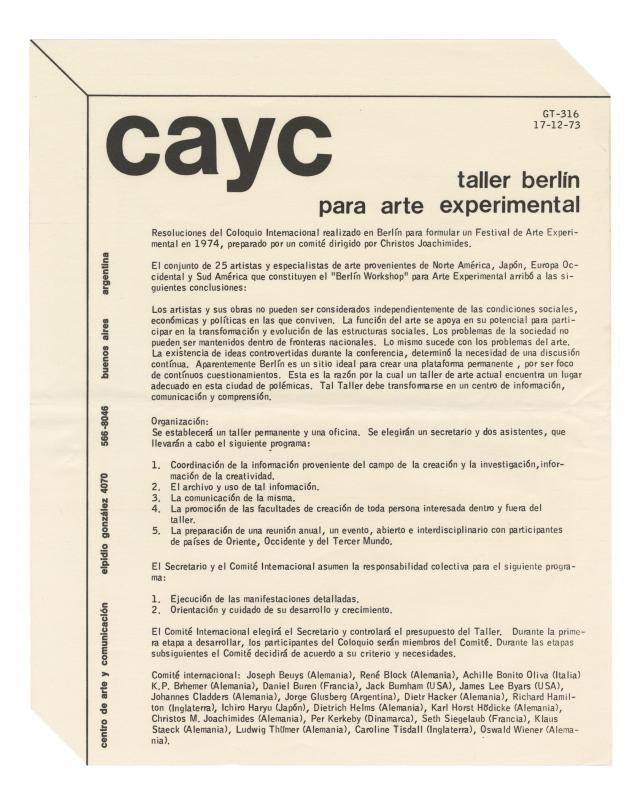Ever since it was founded, the CAYC (Centro de Arte y Comunicación), helmed by the cultural promoter, artist, and businessman Jorge Glusberg, was intended as an interdisciplinary space where an experimental art movement could flourish. The establishment of collaborative networks connecting local and international artists and critics played an important role in this process. The exhibitions shone a light on these exchanges, in which overviews of trends or individual artists provided an introduction to the innovations of international contemporary art and made Argentine and Latin American artists better known on the global scene.
The CAYC’s usual participatory spirit was apparent in this call for entries that invited artists and other members of the international art world to submit their proposals for the Berlin Workshop for Experimental Art 1974. Twenty-five prominent figures in the field of international contemporary art took part in the event, including Joseph Beuys, René Block, Marcel Broodthaers, Daniel Buren, James Lee Byars, Richard Hamilton, the critics Germano Celant, Achile Bonito Oliva, and Ichiro Haryu, and Glusberg, who was the sole representative of South America. The complete list of attendants and the objectives and logistics proposed for the 1974 event were published in a subsequent newsletter (GT-316; doc. no.1478839). The participants signed a document (GT-310; doc. no. 1479015) condemning the human rights violations perpetrated by the recent military coup in Chile and the First World governments’ failure to protest them. They also issued a warning about the danger posed by creeping fascism in Latin America. The coup d’état by the Chilean Armed Forces on September 11, 1973, overthrew the elected constitutional president, Salvador Allende, and installed the de facto government of a military junta led by General Augusto Pinochet that lasted seventeen years.

